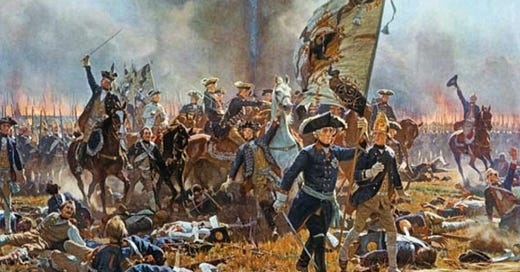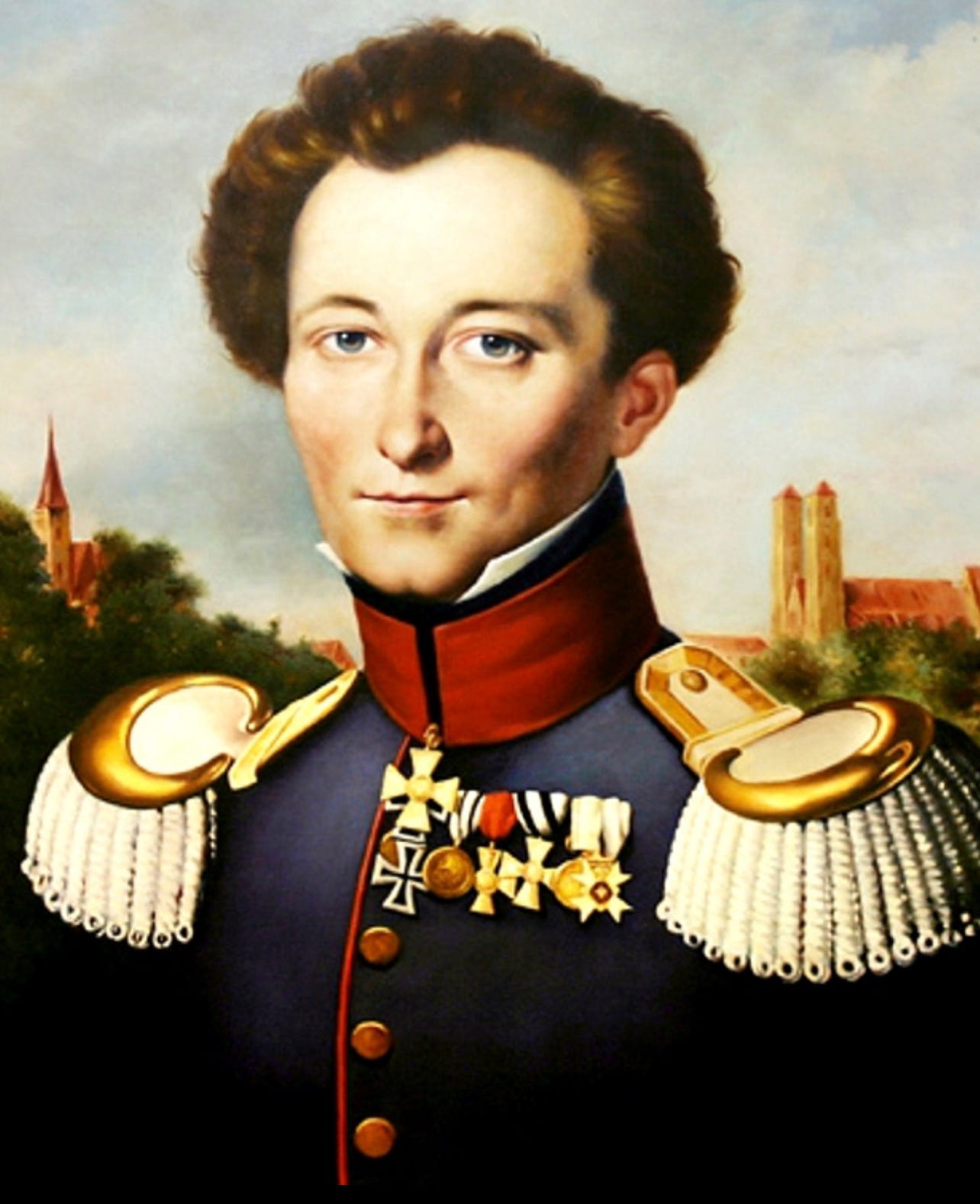Few military minds have cast a longer shadow on the world than Carl von Clausewitz. The Prussian military officer was the author of On War, which has influenced generations of scholars and military leaders. But Clausewitz wasn’t just a writer and an intellectual. He was a soldier and someone who saw firsthand the chaos and consequences of combat.
Although he served in the 19th century, the ideas that Clausewitz left behind transcend warfare. His writings offer a lens through which to understand not just the battlefield, but life itself. Success in both often demands courage and decisive action.
A Life Forged in Conflict
Born in 1780, Clausewitz entered military service at the remarkable age of 12, a common occurrence in Europe at the time. As he grew older, he proved to be not only brave, but intellectually gifted. In 1801, he was admitted to the Military Academy of Berlin, where his exposure to history and political theory laid the groundwork for his later writings.
During the Napoleonic Wars, Clausewitz fought against the French empire that was reshaping Europe by force. After being captured and held in France from 1807 to 1808, he returned home to a political situation he could not stomach, Prussia’s alliance with Napoleon Bonaparte. Driven by his principles, Clausewitz left his homeland and joined the Russian Army, where he helped forge a coalition that would eventually crush Napoleon at Waterloo.
After the war, Clausewitz served as Director of the Military Academy of Berlin until 1830. He later died of cholera in 1831 while leading troops during a border quarantine operation. Upon his death, Clausewitz’s wife, Marie, edited and published his writings as Vom Kriege or On War. This work conveys the strategic principles of warfare as Clausewitz saw them and became the bedrock of Western military theory.
War Is a Duel, So Is Life
Clausewitz famously described war as “a duel on a larger scale.” He meant that, at its core, war is a contest of wills. Each side seeks to impose its will upon the other, often through violence, but always through pressure. The ultimate goal is not destruction for its own sake, but to compel the enemy to do your will.
This same dynamic exists in many parts of life. Whether in negotiations, leadership, or relationships, we often face opposing forces. The lesson here is that our strength of will matters. It's not always about brute force, but about persistence and resolve. When challenges arise, you must ask yourself: What is my goal? And what will I do to see it through? How will I win this duel?
The Political Nature of Conflict
Clausewitz argued that war is never waged in a vacuum. “War is merely the continuation of politics by other means,” he wrote. Every campaign, no matter how brutal or dramatic, is tied to a political objective. Warfare is waged for a reason beyond the battlefield.
In daily life, we should remember that our actions must connect to a purpose. Whether you’re making a career decision or navigating conflict, don’t get lost in tactics or the minutiae of everyday life. You must clarify your objective first. The same way nations go to war to achieve political ends, we must ensure our efforts are pursued with intention. Determine you purpose before you take action.
The Paradoxical Trinity
Clausewitz wrote that warfare is composed of three interactive elements, which he called the paradoxical trinity. He broke down the “trinity” as follows:
Passion and enmity from the people
Chance and uncertainty on the battlefield
Rational policy from the government
He used this trinity to explain the unpredictable and deeply human nature of war. Victory requires managing all three: the emotional, the unpredictable, and the rational.
The application to life is powerful here. We all live under this trinity to some degree. Our emotions motivate us, but can sometimes mislead us. Chance often disrupts our plans. Only reason and rational decision-making keeps us on course. Learning to balance passion, adaptability, and logic is essential for navigating both conflict and daily affairs.
You Must Remain Committed to Win
Clausewitz bluntly said that moderation in war is absurd. According to him, if the aim is to overcome the enemy, one must apply all available force and maintain unyielding focus. Anything less than this endangers victory.
In our own lives, the principle is the same. When we pursue goals like building a business, strengthening a relationship, or pursuing personal growth, we must bring forth all of our effort. Half-hearted attempts in any area will rarely lead to success. Choose your battles wisely, but when you commit, go all in.
Defeat the Enemy on All Fronts
Clausewitz taught that true victory involves defeating the enemy in three distinct areas:
The military force must be neutralized
The homeland or support base must be disrupted
The enemy’s will to resist must be broken
These measures were not about cruelty. They were about recognizing the depth of effort required to truly resolve a conflict.
Life’s adversaries often follow a similar structure. Whether you’re facing a difficult situation or a major obstacle, you must:
Remove its source of strength
Cut off what sustains it
And change your own mindset or environment so it loses power over you
Exhaustion as Strategy
According to Clausewitz, sometimes victory isn’t about a brilliant maneuver, but about outlasting your opponent. For that reason, he emphasized wearing the enemy down over time in order to drain their resources and morale.
This holds true for many long-term struggles. Whether recovering from failure or outpacing the competition, grit has a power all its own. You must stay the course and be willing to do the hard things in life day after day. Go the distance, overwhelm the obstacle with your endurance, and don’t let it overwhelm you.
Insurgency and Influence
Clausewitz wrote in the age of uniformed armies and strict formations on the battlefield. However, he prophetically foresaw a new kind of warfare, the insurgency. He described it as something “nebulous and elusive,” like “smoldering embers” that erode the enemy from within.
This concept is relevant beyond war. Influence in life, especially when you lack formal authority, often works the same way. It’s not always a direct battle that achieves victory. Consistency and steady effort can change environments over time. One must often fight behind the scenes and remain diligent in the pursuit of victory.
Friction: The Fog of War
In his writings, Clausewitz coined the concept of friction. This is the idea that in war, everything is harder than expected. Even the simplest thing can become difficult. Basic movements on the battlefield become complicated by terrain and unexpected weather, but the commander must overcome this friction. Clausewitz said, “the good general must know friction in order to overcome it whenever possible.”
In life, friction can be found everywhere. We plan, only to find obstacles. We expect clarity, and get confusion. The solution is to anticipate issues and plan for them. Like the good general, we must learn to adapt and move forward despite the fog of war. Friction doesn’t mean failure, but it is part of the journey and we must overcome it to achieve our goals.
Seeing What Others Miss
Clausewitz wrote that victory often belongs to the commander with coup d’œil. This is the intuitive ability to grasp the whole battlefield and act decisively. It’s the vision to recognize opportunity during the chaos and the courage to act before others can.
You don’t need to be a general to benefit from this mindset. In business or your personal life, the ability to step back, assess the full picture, and act with clarity is powerful. You must observe the entire situation and trust your instincts. Take it all in, and when others hesitate, you must take action.
Final Thoughts: War as a Mirror of Life
Carl von Clausewitz did not romanticize war. He said, “War is no pastime; it is no mere joy in daring and winning, no place for irresponsible enthusiasts. It is a serious means to a serious end,” He saw it for what it was, a brutal, necessary instrument of statecraft, driven by passion, clouded by friction, and shaped by human will. But from that reality, he drew principles that still apply today.
Clausewitz teaches us that war is the struggle to impose order on chaos, and the same can be said of life.
If we understand our goals, commit with full effort and adapt to friction, we too can succeed in our daily battles. Whether you’re navigating your career or personal relationships, the rules of war remind us that strategy, willpower, and resilience win far more than brute force alone
(At The Ways of a Gentleman, we explore what it means to live with character, purpose, and style in the modern world. Subscribe for more reflections on culture, etiquette, and timeless values.)
.





